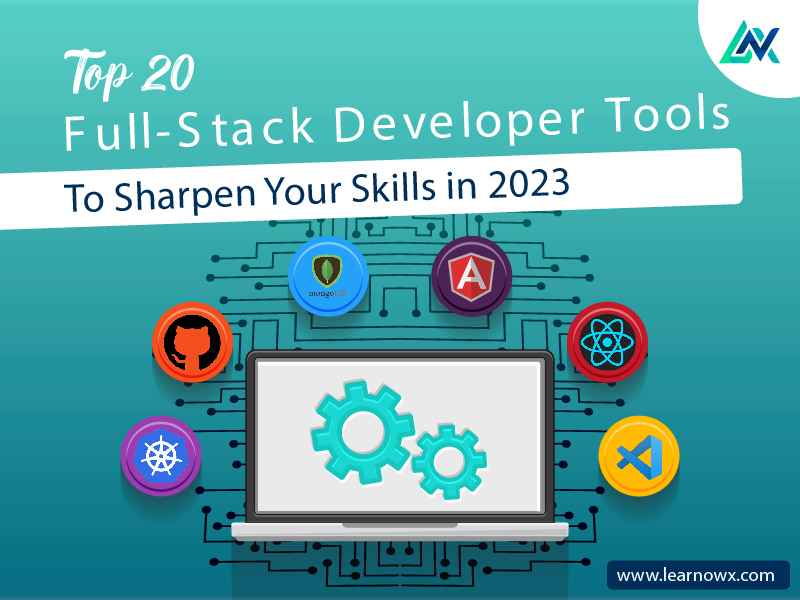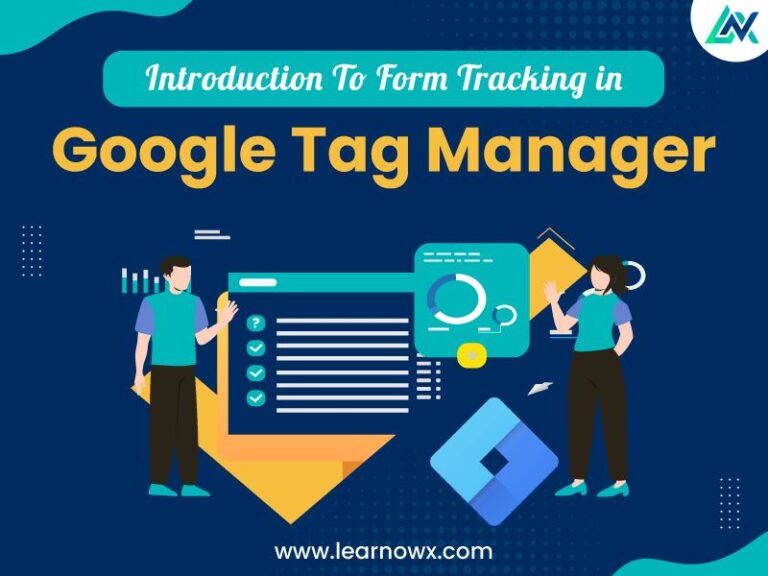Sharing is caring!
Did you know that individuals with versatility in skill sets often grab the highest salaries?
One such example is the Full Stack developer, often referred to as the ‘Front-end maestro’ and ‘Back-end wizard.‘ Being a Full-stack developer entails many roles and responsibilities, making them superheroes with a comprehensive arsenal of tools & programming languages.
The demand for full-stack developers is HUGE, with over 300,000 job openings globally and an average salary of $110,000 per year, making it an incredibly lucrative career option. But what makes it indeed remarkable are the diverse tools at your disposal, enabling you to craft seamless digital experiences.
But when it comes to making a successful & rewarding career as a Full Stack developer, one must continually update their skills and keep up with the latest tools and technologies.
To help you boost your knowledge & sharpen your skills, in the blog post, we will explore the top 20 full-stack developer tools you must learn to excel in your career in 2023.
Anyone can write code, but few can produce error-free, high-quality code that yields profitable outcomes. This is where LearNowX comes into the picture, offering front-end developer course for young professionals to get ultimate training from beginner to advanced levels.
Top 20 Full-Stack Developer Tools to Sharpen Your Skills in 2023
- Visual Studio Code (VSCode)
VSCode is a free source code editor for effortlessly creating & debugging modern web and cloud applications. It can be used on both Windows and Apple platforms. Its rich ecosystem of extensions and robust debugging capabilities make it the perfect tool for writing code efficiently.
- GitHub
GitHub is a web-based hosting platform that offers version control and open-source contribution features. With GitHub, you can effortlessly oversee and monitor changes to your codebase, collaborate on various branches, and seamlessly merge code.
- Node.js
Node.js is like a superpower for full-stack developers. It lets you use JavaScript on the server side to create fast and scalable applications. You can build APIs, handle real-time data, and use many helpful tools to make your work easier.
- React
React, a famous JavaScript tool is perfect for making user interfaces. You can quickly build efficient and interactive interfaces when you become good at React. Mastering React allows you to create user-friendly and dynamic websites, making it a smart choice for your front-end skills.
- Angular
Angular, a TypeScript-based framework maintained by Google, empowers developers with robust tools like two-way data binding and dependency injection, simplifying the creation of dynamic web applications, including single-page apps while offering extensive browser compatibility and custom component creation.
- Express.js
Express.js, a minimal Node.js framework, simplifies web app and API development and is favored by back-end developers. It streamlines routing and Request/Response handling, efficiently managing data and presentation with support for template engines.
- MongoDB
MongoDB, a top NoSQL database, excels at managing vast unstructured data, making it a perfect fit for modern web apps. Its document-based approach and dynamic schema simplify data handling, allowing efficient database construction and application scalability.
- PostgreSQL
PostgreSQL is a robust yet effective open-source relational database system. It’s known for its data integrity and support for advanced SQL queries.
- Docker
Docker simplifies web app deployment by packaging applications and their dependencies into containers, ensuring consistent deployment across platforms. It has been recognized as the leading developer tool in the 2023 Stack Overflow survey.
- Kubernetes
Kubernetes serves as the open-source container orchestration platform that helps you handle containerized applications with ease. It’s essential for scaling & deploying applications in a production environment.
- Webpack
Webpack is the premier JavaScript module bundler used in modern web development. It streamlines and optimizes your code, assets, and resources, improving web application performance through efficient dependency bundling, reduced load times, and effective code splitting.
- Redux
Redux is a reliable state container for JavaScript applications, ideal for managing complex application states in large-scale projects. It ensures predictability and simplicity when handling data flow and state management.
- GraphQL
GraphQL, a dynamic API query language, helps developers fetch the required data more efficiently than traditional REST APIs. Its massive usage & popularity in web development highlights its ability to streamline data retrieval and enhance performance.
- Visual Studio DevOps
Visual Studio DevOps provides various tools and services for automating software delivery and deployment. It’s crucial for implementing Continuous Integration and Continuous Deployment (CI/CD) pipelines.
- Jenkins
A popular open-source automation server, Jenkins empowers developers to streamline the CI/CD pipeline by automating essential tasks such as application building, testing, and deployment. With its versatility and robust features, Jenkins is a must-have tool for efficient software development and delivery.
- GitLab
GitLab offers a complete DevOps platform with built-in CI/CD pipelines, source code management, and more. It’s much more similar to GitHub.
- NPM (Node Package Manager)
NPM, the default package manager for Node.js, makes adding and managing code packages easy, letting you effortlessly bring in different pieces of code to enhance your projects. It streamlines package installation & dependency management, allowing you to integrate various libraries.
- Swagger
Swagger is a tool for designing, building and documenting RESTful APIs. It ensures that your APIs are well-documented and easy to understand.
- Chrome DevTools
Chrome DevTools comprises web developer tools built directly into the Google Chrome browser. They help you find and fix problems in your web applications, making them run smoothly and efficiently.
- Heroku
Heroku, the ultimate cloud platform, allows you to deploy, manage, and scale applications easily, making it an excellent choice for hosting projects without worrying about the technical details of servers and infrastructure.
As a full-stack developer, your skills and tools are your most valuable assets. These above-mentioned tools cover various functionalities, from code editors and version control systems to databases and containerization platforms. These are essential to boost your skills as a Full-Stack developer in 2023. Mastering these tools not only opens doors to a multitude of job opportunities but also empowers you to create versatile, end-to-end applications.
To further enhance your full-stack development skills and stay one step ahead of the crowd, consider enrolling in the LearNowX Full Stack course designed to help you excel in your career. Whether you are a beginner or an experienced developer, the LearNowX front-end developer course covers everything you need to excel in the development world, taking your development skills to a whole new level. Join us today & take the first step towards becoming a full-stack development expert!








